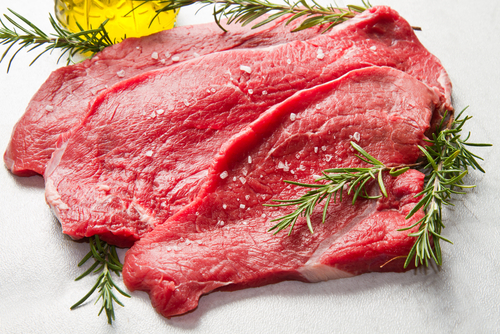Red meat consumption is linked to increased risk for kidney failure, but replacing red meat with alternative sources of protein now and then could reduce the risk significantly, according to the report “Red Meat Intake and Risk of ESRD,” published in the Journal of the American Society of Nephrology (JASN).
The number of people who develop chronic kidney disease (CKD) is increasing worldwide, with many patients eventually progressing to end-stage renal disease (ESRD) which requires dialysis or a kidney transplant. Randomized controlled trials suggest that protein restriction may delay the progression of CKD toward ESRD. But the impact of restricting protein intake, or switching food sources for the protein, remains unclear when it comes to continued CKD or the subsequent risk of ESRD.
To investigate the relationship between dietary intake of major sources of protein and kidney function, researchers conducted a data analysis from the Singapore Chinese Health Study, a population-based cohort study that recruited 63,257 Chinese adults, ages 45–74 from 1993 to 1998. The population represented a people with 97% of red meat intake based on pork and the remaining sources of protein including eggs, poultry, dairy products, soy, fish, shellfish, and legumes.
Researchers collected information on habitual diet through a validated semiquantitative food frequency questionnaire, and identified ESRD through record linkage with a nationwide registry. After a mean followup of 15.5 years, 951 cases of ESRD occurred, revealing that red meat intake was associated with an increased risk of ESRD.
Those who consumed the highest amount of red meat had a 40% increased risk of developing ESRD in comparison to people who consumed lower amounts. But replacing one serving of red meat with other food sources of protein showed a maximum relative ESRD risk reduction of 62.4%.
“We embarked on our study to see what advice should be given to CKD patients or to the general population worried about their kidney health regarding types or sources of protein intake,” said study author Woon-Puay Koh, PhD, Duke-NUS Medical School and Saw Swee Hock School of Public Health at National University of Singapore, in a news release. “Our findings suggest that these individuals can still maintain protein intake but consider switching to plant-based sources; however, if they still choose to eat meat – fish, shellfish and poultry are better alternatives to red meat.”

